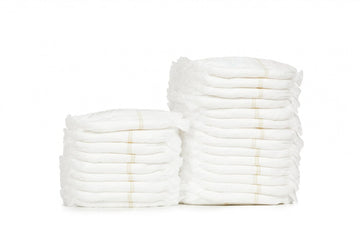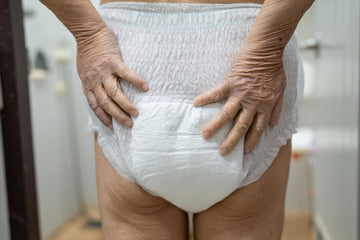Newly married mothers must give their postpartum health priority if they are to enter parenthood with strength and resilience. By focusing on self-care techniques that include nutrition, mental balance, physical healing, and assistance with nursing, mothers can improve their current state of health and provide better care for their children. Seeking guidance from medical professionals during difficult times guarantees pregnancy care according to each affected person's preferences. In the end, promoting postpartum health benefits not just the moms but also the average postpartum wellness of the family. Let us emphasize the need for self-care and support newlyweds as they embark on this life-altering journey into parenthood.
What is Postpartum Wellness?
Postpartum wellness considers a new mother's overall desires for her body, mind, and soul following childbirth. It strongly emphasizes using self-care techniques to support regular well-being and fitness during the postpartum transition, help with recovery, and regain equilibrium.

Importance of Self-Care After Childbirth
After giving birth, new mothers must look after themselves to restore strength, refuel, and maintain their postpartum wellness. Setting self-care as a top priority helps maintain a positive outlook, strengthen the mother-child link, and handle the demanding parts of parenthood. In the end, it helps to create a more peaceful home atmosphere by giving moms the tools they need to adjust to becoming mothers with fortitude and compassion for themselves.
Physical Recovery After Childbirth
After giving birth, it's critical to give yourself ample time to heal because the process causes significant internal body changes. Rebuilding strength and accelerating recovery requires prioritizing rest, proper wound care, and light physical hobbies. Pelvic floor exercises are beneficial for regaining muscle tone and halting incontinence.
Progressively reducing the intensity of activities and seeking clinical advice for any difficulties encountered ensures a more seamless rehabilitation process. This will ultimately assist in restoring pre-pregnancy fitness and interest levels.
Emotional Wellness
Postpartum moms experience a flurry of emotions, emphasizing the significance of mental health at some point in this section. Hormonal changes can cause pressure and mood swings, especially when combined with sleep issues and adjusting to new duties. Making self-care activities a priority, such as practising relaxation techniques, taking up interesting hobbies, and seeking support from family members, partners, or counselling services, is essential for fostering emotional resilience.
Expert therapy or counselling provides customized guidance for handling postpartum depression or anxiety, giving moms helpful direction and coping skills to get through this phase of change.
Nutrition and Hydration
Postpartum recovery and nursing benefit from a healthy weight-reduction strategy and regular hydration. A diet high in whole grains, lean meats, and veggies restores essential vitamins and maintains energy levels. The right amount of water intake is necessary for producing milk and avoiding issues like constipation. A dietician or healthcare professional's advice can help customize meal plans to meet the specific requirements and preferences of the mother and her child.
Physical Activity and Exercise
After giving birth, regular physical activity is beneficial for general well-being and weight management. Exercises that are easy on the body, including swimming, yoga, and walking, help enhance flexibility and temperament. It's critical to focus on the body and gradually increase activity levels to prevent injury. The incredible benefits of exercise, such as increased energy and less stress, contribute to a fulfilling postpartum wellness experience.
Support for Breastfeeding
Access to candid breastfeeding advice is crucial for mothers facing the complexities of lactation. Obtaining this assistance can help address common challenges such as low milk supply or latch difficulties, whether through lactation consultants, support organizations, or online resources. Establishing and sticking to a consistent breastfeeding routine not only enhances milk production but also fosters a stronger bond between mother and child.
Breastfeeding becomes a more enjoyable experience with the support and encouragement of friends and healthcare professionals. Their assistance boosts confidence and contributes to a more fulfilling breastfeeding journey for mothers.
Prioritizing Sleep and Rest
Getting enough sleep and rest is crucial for new mothers' health and postpartum recovery. To fight weariness, prioritize sleep whenever possible and get help with household duties or late-night feedings.
Better, more restful sleep can be achieved by practising relaxation techniques and setting up an environment that encourages naps. Allowing both the mother and the infant to take naps during the day can also help restore energy levels and promote both the physical and mental healing process following childbirth.
When to Consult Your Healthcare Provider for Postpartum Wellness
It's critical to get assistance from a healthcare practitioner right away if you have severe bleeding, ongoing physical discomfort, or any indications of infection during the postpartum period. Similarly, getting professional assistance is crucial if you struggle with strong emotions, persistent melancholy, or worry that interferes with day-to-day functioning.
Furthermore, don't be afraid to seek medical advice if you experience difficulty nursing, such as poor milk production or latch issues. Your healthcare practitioner can offer you individualized support and direction based on your unique needs, which will help the transition to parenting go more smoothly and improve general health.
Conclusion
New mothers who wish to transition into motherhood with resilience and fortitude must prioritize their postpartum wellness. By focusing on self-care techniques that include nutrition, mental stability, physical repair, and assistance with breastfeeding, mothers can enhance their current state of health and provide better care for their children. Seeking advice from medical professionals under challenging situations guarantees personalized care according to each affected person's preferences. Encouraging postpartum fitness ultimately benefits the average well-being of the family and the moms. Let's continue emphasizing the need for self-care and support new mothers as they embark on this life-altering journey into motherhood.
FAQs:
How soon can I start exercising after childbirth?
After giving delivery, you can progressively resume your exercise regimen, concentrating on low-impact exercises like swimming, yoga, and walking. For individualized guidance, pay attention to the body's needs and speak with the healthcare professional.
What are normal emotional changes postpartum?
After giving birth, mood swings, feelings of overwhelm, and sporadic episodes of melancholy or worry are all common emotional changes. Getting assistance from family members and experts might help you deal with these feelings.
How can I tell if I'm experiencing postpartum depression?
Postpartum depression may be the cause of ongoing melancholy, anxiety, or functional difficulties. Speak with the physician for a diagnosis and individualized care.
What tips can help improve breastfeeding success?
Some strategies to increase breastfeeding success are getting help from lactation consultants or support groups, creating a regular nursing schedule, making sure the baby latches properly, and putting self-care first to sustain milk production.
When should I have my postpartum checkup with my healthcare provider?
Six weeks or so after giving birth, you should schedule a postpartum checkup with the healthcare provider or whenever the provider advises. Evaluation of the patient's physical and mental health, as well as advice on postpartum wellness, are possible during this session.






